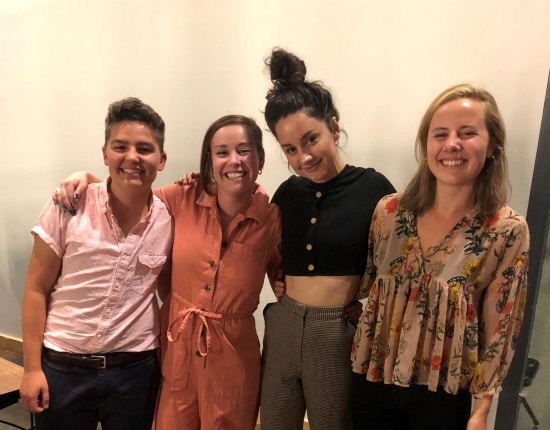Addressing Gender-Based Violence as a Transgender Man
At one time or another, or perhaps many times across our lives, we are all likely to engage with communities of people of which we are not a part. One such community for me is that of people affected by gender-based violence. While I have not experienced gender-based violence directly, my identity puts me in a unique position to address the problem. On the one hand, as a queer, transgender person I am at a greater risk of experiencing gender-based violence: 47 percent of transgender people are sexually assaulted in their lifetime.[1] On the other hand, my identity as a man places me in the midst of the population responsible for perpetrating the majority of the gender-based violence in our society.[2] Because I see myself on both sides of the issue, I feel a responsibility to both support survivors and hold perpetrators accountable.
First as a member of a peer advocacy group in college and then as a volunteer advocate at TESSA of Colorado Springs (an organization that works to eradicate domestic violence), I received important training and instruction on how to approach such a complex issue. One thing I learned in these trainings was the importance of empowering survivors to make their own choices. Since survivors are coming from situations with limited choice and freedom, it is important to allow them to choose which resources they would like to use and to do so on their own timelines. While it may be tempting to jump in and make decisions for someone in an effort to help, telling survivors what they need only controls and disempowers them further than an abuser already has.
After two years volunteering with survivors, I came to an understanding that gender-based violence could not be adequately addressed solely by supporting survivors and, thus, became passionate about helping perpetrators to change their behavior. Simply put, a problem cannot be solved without addressing the cause. I also felt that, as a man, I had a certain amount of responsibility to understand a problem caused predominantly by men. So, I decided to intern in El Paso County’s Domestic Violence Problem-Solving Court, an intensive program for perpetrators of domestic violence that serves as an alternate to a prison sentence.
I had empathy for these individuals. Though they had caused much pain and suffering, I also felt passionately that they should receive the necessary resources, education and accountability to change their behavior. I wondered what experiences had led them to such behavior. What I learned was that many of them had suffered trauma of their own and been raised in homes where violence, power and control were prevalent. Through a combination of regular therapy, substance use treatment (if applicable), group classes, probation and court appearances, many participants have been able to change their behavior. This experience demonstrated to me that empathy and accountability are not contradictory, but complementary. In fact, I’m not sure how accountability could exist without empathy. To hold someone accountable is to hold them to a standard of humanity. And to do that we must see one another as whole people.
Working with a community of which I am not a member has reminded me that everyone’s experiences are different. People seek help and healing in different ways, and it is hard and necessary work to listen and do my best to understand the needs of each person I serve. These experiences have taught me that we are all deserving of empathy and of being held to a standard of humanity.
I strive to embody this philosophy every day throughout my life and work. Being aware of my own experiences and identities has helped me empathize and understand those of others. Whether it is meeting with community members in the Northwest region through my support of the Northwest Regional Council or telling the stories of grantee partners through my work on the communications team, I am continually reminded that each of our unique identities affects how we interact with and navigate our communities.



